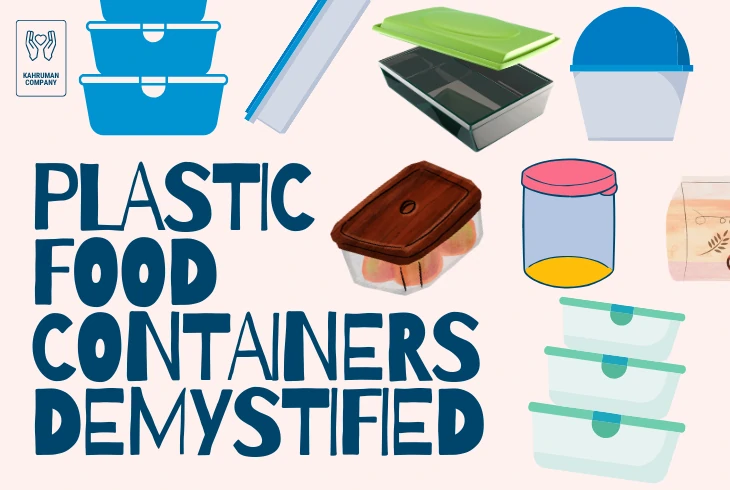What is bottling olive oil?
Bottling olive oil is the process of transferring freshly extracted olive oil from a storage container to a clean, airtight bottle or container for storage and commercial or personal use. Bottling olive oil is an art form that requires care and precision. The bottling process (packaging) involves filtering the oil to remove any impurities and then carefully pouring or pumping the oil into the bottles, cruets, or containers, ensuring they are properly sealed to prevent oxidation and maintain freshness.
What is the best way to preserve olive oil?
The perfect way to preserve organic olive oil is to do the following steps:
Store olive oil in a cool, dark place, away from direct sunlight and heat.
Keep the bottle or container tightly sealed to minimize exposure to air.
Choose a high-quality, airtight container made of dark glass or stainless Steel to protect the oil from light and oxygen.
Use the oil within its recommended shelf life to ensure maximum freshness and flavor.
Avoid storing olive oil in a clear bottle, which can allow light to penetrate and damage the oil.
Check the oil regularly for signs of spoilage, such as a rancid smell or taste, and discard it if necessary.
Why is bottling olive oil important?
Bottling olive oil is important because it allows the oil to be packaged and distributed safely, conveniently, and hygienically. Proper bottling can help to ensure that the oil remains fresh and flavorful, preserving its nutritional value and quality over time, especially for importers and wholesalers.
Additionally, bottling Purest Olive Oil can help to protect it from exposure to light, air, and moisture, which can cause it to spoil and lose its beneficial properties. Finally, bottling can allow producers to customize their packaging, adding labels and branding that can help differentiate their classic products and build customer loyalty.
What types of bottles or containers are suitable for bottling olive oil?
Olive oil is a highly nutritious oil that is extracted from olives. The olives are pressed mechanically to avoid oxidizing and preserve the oil's rich taste. It is a staple ingredient in Mediterranean cuisine used for cooking, dressing salads, and as a condiment.
When bottling olive oil, choosing the right type of container is crucial for maintaining its quality and preventing spoilage. The stoneware and pottery bottles are shaped beautifully with an embossed spout or stopper. We will explore the different types of bottles or containers suitable for bottling olive oil and answer some common questions about olive oil storage.
Is it better to store olive oil in a dark bottle?
It is better to store olive oil in a dark bottle as it protects the oil from light exposure, which can cause oxidation and spoilage. The best types of bottles for olive oil are made of dark glass, such as green or amber, which offer the most effective protection against light. The bottles come in various capacities and closures, including a rainbow-edition limited edition and an Olipac design that prevents leaking.
Read More about: Why you need to Import Turkish Olive Oil?
Should olive oil be stored in a tin or glass bottle?
While tin bottles may look attractive, they are not the best choice for storing olive oil. Tin is susceptible to corrosion, which can affect the quality and flavor of the oil. Glass bottles are a better choice as they do not corrode and offer superior protection against light and oxygen.
What color bottle is best for olive oil?
The best color for an olive oil bottle is green or amber. These colors provide the best protection against light exposure, which can cause oxidation and spoilage. Clear glass bottles should be avoided as they do not offer sufficient protection against light.
Does olive oil go bad in a clear bottle?
Yes, olive oil can go bad in a clear bottle if exposed to light. Clear glass does not provide adequate protection against light exposure, which can cause the oil to spoil more quickly. As a result, it is best to avoid storing olive oil in clear bottles.
Can you store olive oil in a Mason jar?
While it is possible to store olive oil in a Mason jar, it is not recommended. Mason jars are typically made of clear glass, which does not provide sufficient protection against light exposure. Additionally, the lids of Mason jars may not provide a tight enough seal, which can lead to air exposure and spoilage.
Can I customize the labels for my bottled olive oil?
Yes, you can customize the labels for your bottled olive oil. Many bottling companies offer labeling services, or you can create labels at home. It is important to include the necessary information on the label, such as the production date, the type of olive oil, and any relevant nutritional information.
Read More about Olive Oil: Pros and Cons
What is the best way to fill bottles with olive oil?
A clean and dry funnel is the best way to fill bottles with olive oil. This will help prevent any spillage or waste and ensure the oil is poured evenly into the bottle. It's also important to use a bottle or container that is appropriate for the amount of oil you are filling, as overfilling can cause the bottle to leak or spill. When filling the bottle, hold the funnel steady and pour the oil slowly, stopping periodically to allow any air bubbles to rise to the surface. Once the bottle is filled, clean the rim with a paper towel and seal the bottle tightly with a cap or cork.
Can I bottle flavored olive oil?
Yes, you can bottle flavored olive oil. Wide varieties of flavored olive oil are available on the market, or you can create your own by infusing herbs, spices, or other flavors into the oil. It is important to note that flavored olive oil should be stored separately from unflavored olive oil to prevent cross-contamination.
The following table shows the best dispenser bottles to store oils:
Type of Container | Material | Pros | Cons |
Glass Bottles such as cruet | Glass | Non-reactive, impermeable to air and light, available in various sizes and shapes | Breakable, can be heavy |
Tin Containers | Tin | Lightweight, shatterproof, impermeable to air and light | Limited sizes and shapes |
Plastic Bottles | PET or HDPE | Cost-effective, lightweight, shatterproof | Permeable to air and light, can degrade over time |
Stainless Steel or porcelain ,ceramic Containers | Stainless Steel | Durable, hygienic, impermeable to air and light, available in various sizes and shapes | Expensive, not ideal for small-scale production |
How should olive oil be stored after bottling?
Extra virgin Olive oil should be stored properly to maintain its quality and freshness after bottling. Here are some guidelines on how to store olive oil:
Please keep it away from heat: Olive oil should be stored in a cool, dark place away from heat sources such as stovetops, ovens, or direct sunlight. Exposure to heat can cause the oil to degrade and lose its flavor and nutritional value.
Keep it sealed: Olive oil should be stored in airtight containers such as glass bottles or stainless steel canisters with tight-fitting lids. Oxygen can cause the oil to become rancid, so minimizing its exposure to air is important.
Store in a dry place: Moisture can also cause olive oil to spoil, so storing it in a dry place is important.
Use it within a reasonable timeframe: Olive oil doesn't have an indefinite shelf life, so it's best to use it within a reasonable timeframe, usually within six months to a year of bottling. Check the expiration date and use-by date on the bottle to ensure that the oil is still fresh.
By following these guidelines, you can help to maintain the quality and freshness of your olive oil for as long as possible.
How long does olive oil last after bottling?
The shelf life of olive oil after bottling depends on several factors, including the quality of the oil, the way it is processed, and how it's stored. Generally, high-quality extra-virgin olive oil that has been properly stored can last up to two years after bottling.
However, it's important to note that olive oil will degrade over time, losing its flavor and nutritional value. As a result, it's best to use olive oil within a reasonable timeframe, usually within six months to a year of bottling. Additionally, it's important to check the expiration date or use-by date on the bottle, as this will indicate when the oil is no longer fresh.
To help extend the shelf life of your olive oil, it's important to store it properly, in a cool, dark place away from heat sources, and in an airtight container to minimize its exposure to air. With proper storage and use within a reasonable timeframe, you can enjoy olive oil's fresh, delicious taste for a long time.
Can I bottle my olive oil at home?
Technically, it is possible to bottle your olive oil at home if you can access fresh olives and the necessary equipment for pressing and bottling the oil. However, it's important to note that producing high-quality olive oil requires specialized knowledge and expertise in processing and bottling the oil.
Suppose you're interested in bottling your olive oil. In that case, it's recommended that you consult with experts in the field, such as olive growers or processors, to learn about the process and the necessary equipment. Additionally, you may need to obtain permits and comply with food safety regulations in your area before selling or distributing your olive oil.
Suppose you're not experienced in olive oil production. In that case, it's usually best to purchase olive oil from a reputable producer or supplier to ensure that you're getting a high-quality product that's safe for consumption. Many great options are available, both online and in stores, offering a wide range of olive oils from different regions and producers.
While bottles can be used for bottling olive oil, storing them in drums or tanks is generally more advisable. If you plan to bottle small amounts of olive oil, you may want to get a hand pump. Other options for bottling olive oil include using gravity fillers and vacuum fillers.
Is there a minimum order for bottling olive oil?
The minimum order for bottling olive oil can vary depending on the producer or supplier. Some may have a minimum order requirement for wholesale orders, while others may offer smaller quantities for retail customers.
If you're interested in bottling your olive oil, you may need to purchase equipment and supplies, such as bottles, caps, and labels, in addition to the oil itself. The cost of these items can also vary depending on the quantity and quality you require.
If you're purchasing bottled olive oil from a certified supplier, the minimum order may depend on the supplier's policies and the quantity of oil you need. It's always a good idea to check with the supplier for their minimum order requirements and any other terms and conditions that may apply.
Overall, the minimum order for bottling olive oil will depend on various factors, including your specific needs and the supplier or producer you're working with.
Are there any regulations or standards for bottling olive oil?
Yes, regulations and standards for bottling olive oil vary depending on the country or region where the oil is produced and bottled. The purpose of these standards is to provide consumers with certain guarantees about the premium and natural olive oil they purchase. Here are some examples:
European Union (EU): The EU has established a set of standards for olive oil production and labeling, known as the Protected Designation of Origin (PDO) and Protected Geographical Indication (PGI) regulations. These regulations require olive oil producers to follow certain production practices and adhere to specific quality standards to use the PDO or PGI labels.
International Olive Council (IOC): The IOC is an intergovernmental organization that sets standards and guidelines for producing, processing, and trading olive oil. The IOC's standards cover sensory analysis, chemical analysis, and labeling requirements.
United States (US): The US has established its standards for olive oil labeling and quality, which are regulated by the United States Department of Agriculture (USDA). The USDA's standards cover areas such as grades of olive oil, labeling requirements, and testing methods.
In addition to these regulations and standards, many countries and regions have laws and guidelines for olive oil production and bottling. These laws and guidelines may cover food safety, labeling requirements, and packaging materials. It's important to be familiar with the regulations and standards that apply to the olive oil you're producing or purchasing to ensure that it's safe and high-quality.
How do I choose a bottling company for my olive oil?
Choosing a bottling company for your olive oil will depend on several factors, including the quantity of oil you need to bottle, your budget, and the specific services you require. Here are some factors to consider when choosing a bottling company:
Experience and expertise: Look for a bottling company with experience in bottling olive oil and a good reputation in the industry. Consider checking their references, reviews, and certifications to ensure they have the expertise and knowledge to produce high-quality bottled olive oil.
Services offered: Consider the range of services offered by the bottling company, including bottling, labeling, and packaging. You may also want to consider additional storage, transportation, and distribution services.
Equipment and facilities: Check if the bottling company has state-of-the-art equipment and facilities suitable for your specific needs. Consider visiting the facility to see if it meets your standards and requirements.
Quality control: Look for a bottling company with a strict quality control process to ensure that the olive oil is of high quality and safe for consumption.
Cost: Consider the cost of the bottling services and how it fits into your budget. Compare the prices of different bottling companies and choose one that offers a fair price for the services provided.
Location: Choose a bottling company close to your olive oil production facility to minimize transportation costs and time.
To ensure that the oil's quality is maintained during shipping, the bottles are carefully packed and shipped within 24 hours.
How do I ensure the quality of my bottled olive oil?
Ensuring the quality of your bottled olive oil is crucial for your business and your customers' satisfaction. Here are some ways to ensure the quality of your bottled olive oil:
Source high-quality olive oil: Start by sourcing high-quality olive oil from reputable producers or suppliers. This will ensure that the oil you use for bottling is fresh, pure, and defects-free.
Choose the right packaging: Shop high-quality bottles, caps, and labels suitable for storing and transporting olive oil. Consider using dark-colored glass bottles that protect the oil from light and air, and prevent oxidation.
Follow good manufacturing practices: Follow good manufacturing practices (GMP) to ensure your bottling process is hygienic, safe, and efficient. This includes proper cleaning and sanitization of equipment and facilities, storing and handling raw materials and finished products, and labeling and traceability.
Conduct quality control tests: Conduct regular quality control tests to ensure your bottled olive oil meets the required quality standards. This includes sensory, chemical, and physical analyses to test for factors such as flavor, aroma, acidity, and color.
Store the bottled olive oil properly: Store the bottled olive oil in a cool, dry, and dark place to prevent oxidation and rancidity. Avoid exposing the oil to direct sunlight, heat, or air.
Monitor the shelf life: Monitor the shelf life of your bottled olive oil and ensure that it's consumed within the recommended timeframe. Include a production date or expiration date on the label to help your customers keep track of the shelf life.
By following these practices, you can ensure that your bottled olive oil is high quality and safe for consumption.











